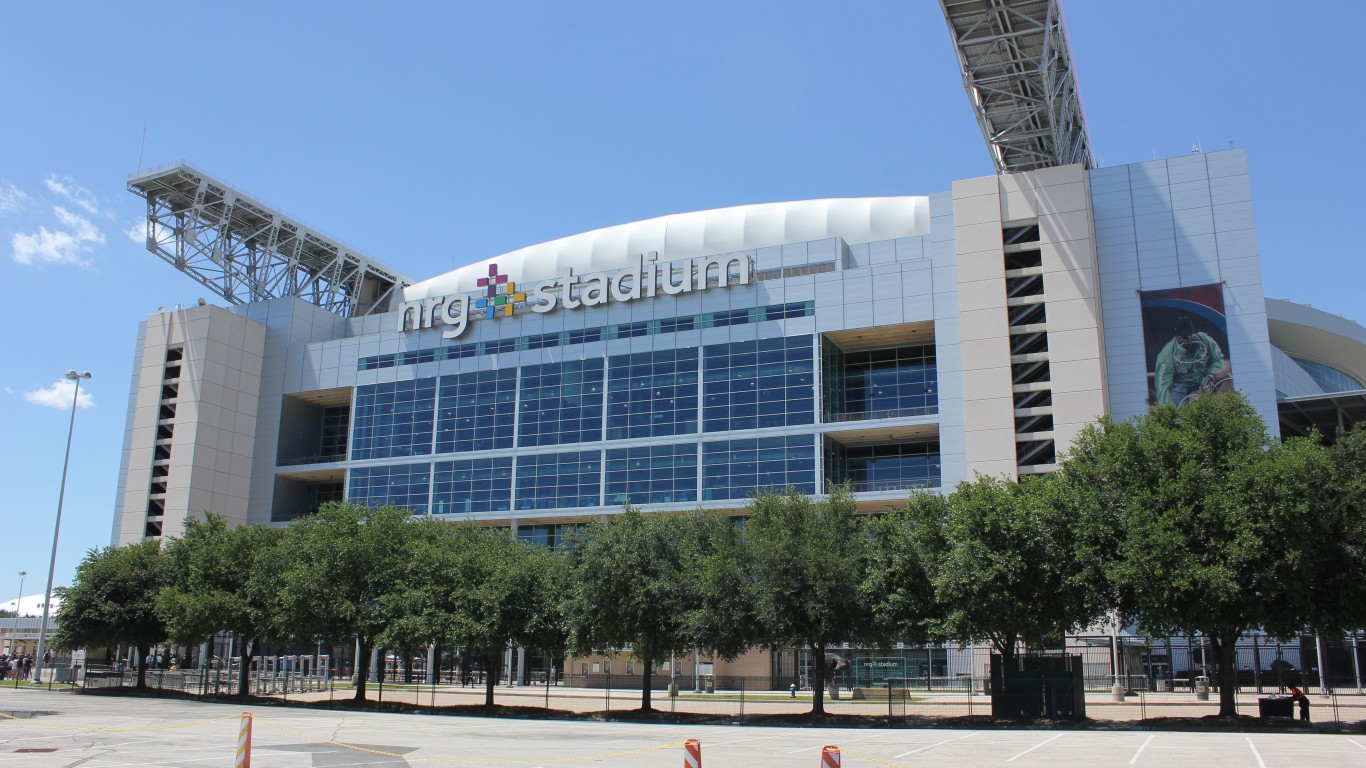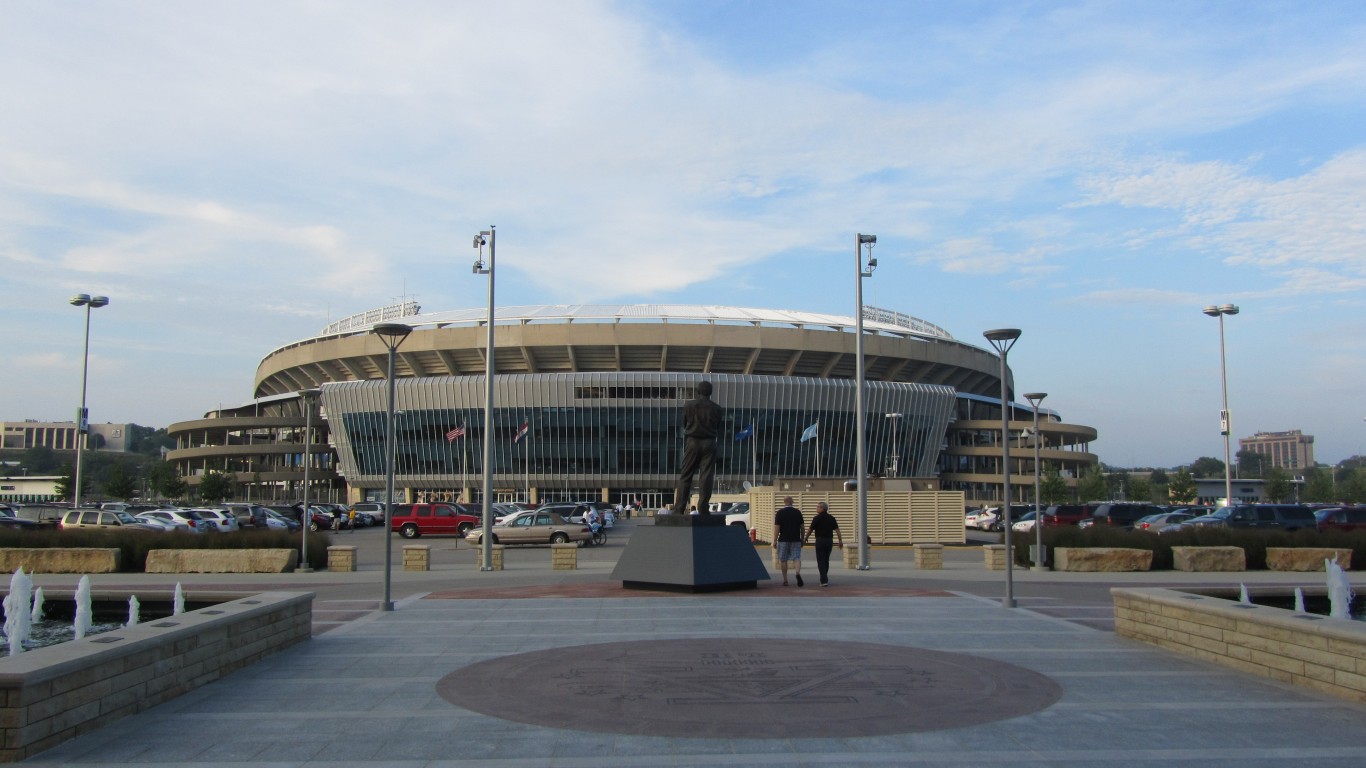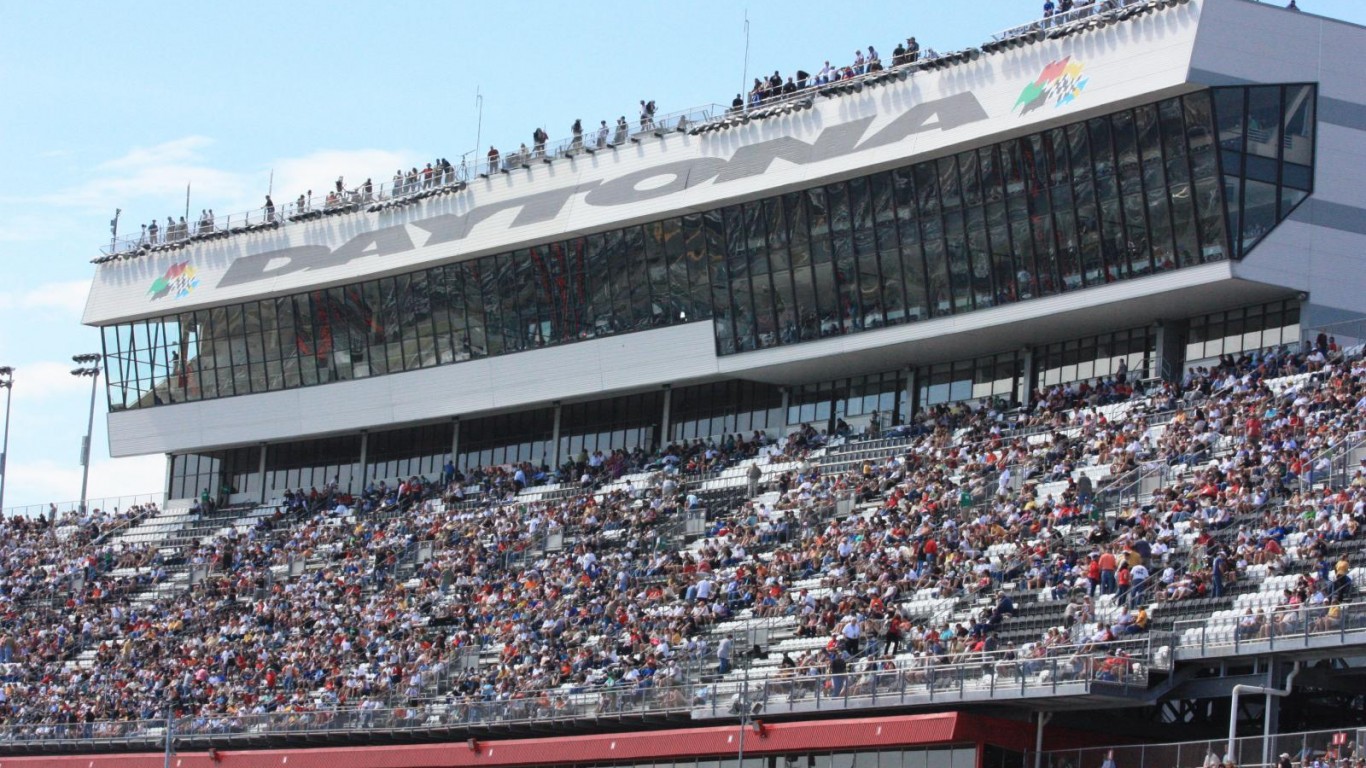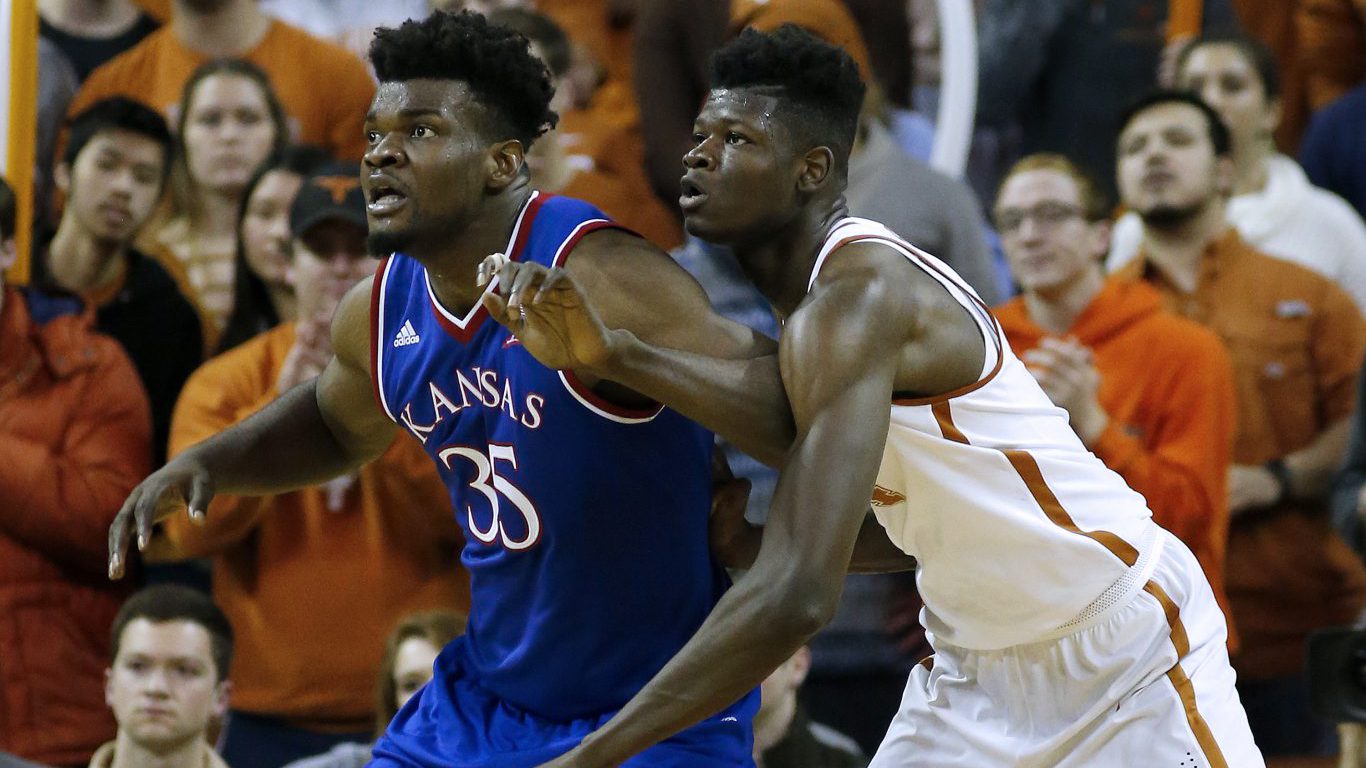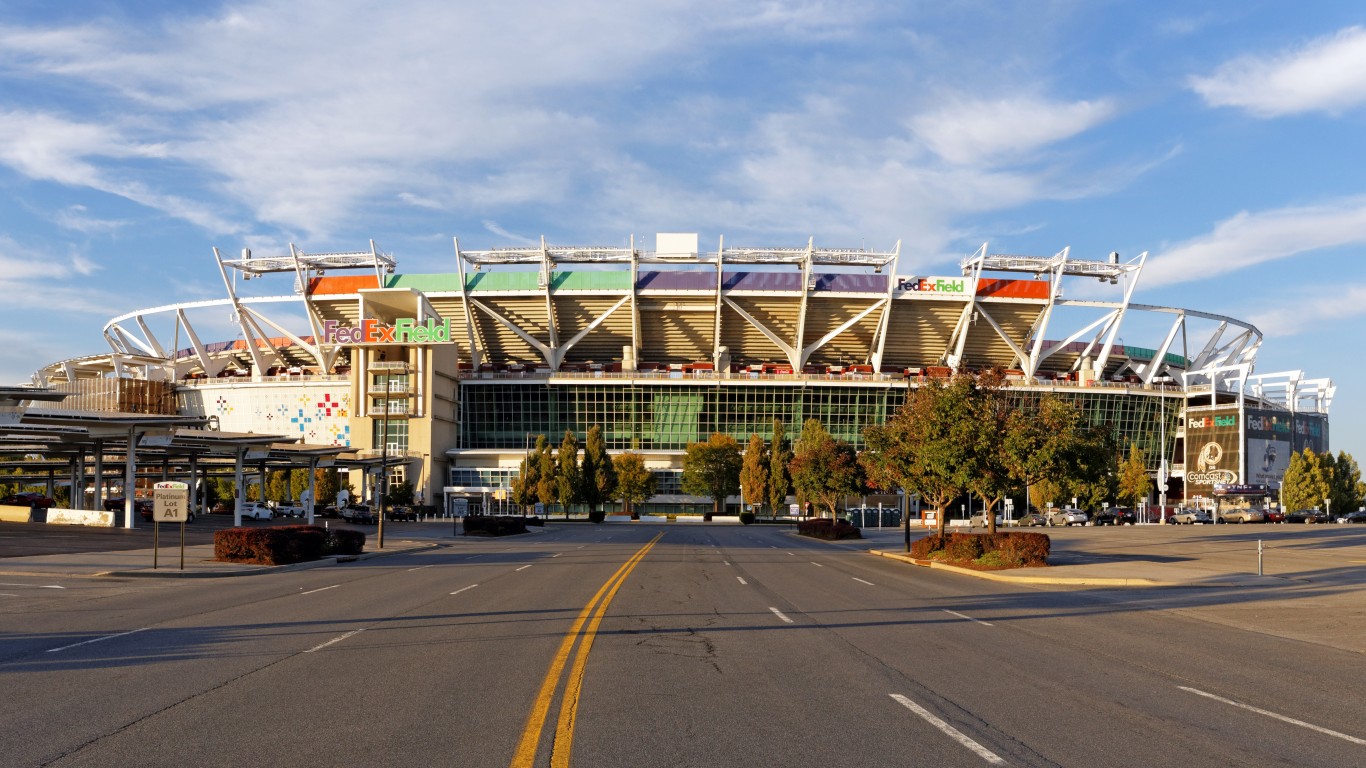
Though it is years away, the U.S. is already gearing up to help host the 2026 FIFA World Cup – considered the world’s most prestigious sports tournament. Along with neighbors Canada and Mexico, America will host millions of soccer fans from around the world as they come to cheer on their national teams.
On June 16, soccer’s governing body, FIFA (the initials stand for the organization’s name in French, Fédération Internationale de Football Association) will select 16 cities from these three countries to host World Cup matches, with an estimated 10 or 11 American metro areas getting the nod. In recent years, major metro areas across the country have lobbied for the right to host the World Cup – with all the prestige and tourism dollars that comes with it.
To compile a list of the US cities and venues that could host the 2026 FIFA World Cup, 24/7 Tempo reviewed FIFA’s list of potential host metro areas, along with the stadiums where the games would be played. Stadium capacities were provided by each venue’s informational websites and local media reports.
FIFA is reportedly considering NFL and college football stadiums as host sites, as they are the only venues with a large enough capacity to accommodate demand. These stadiums can hold anywhere from 65,000 to over 100,000 fans, dwarfing the capacities of local soccer arenas.
North America’s bid for the 2026 World Cup was bolstered by the fact that they already have large stadiums in use. In the past, host nations for World Cups, Olympics, and other events were forced to spend hundreds of millions of dollars to build new venues that have been seldom used following those events. (These are the most expensive stadiums around the world.)
Click here to see the U.S. cities that could host the 2026 World Cup
In addition to reviewing stadiums, FIFA said it judged each city based on “ancillary events and venues…human rights, legacy, general infrastructure and financial impact.” FIFA wants each city to ensure fans can have a fun, safe, and enjoyable time at the World Cup outside of the games themselves. (These are America’s best cities to live.)
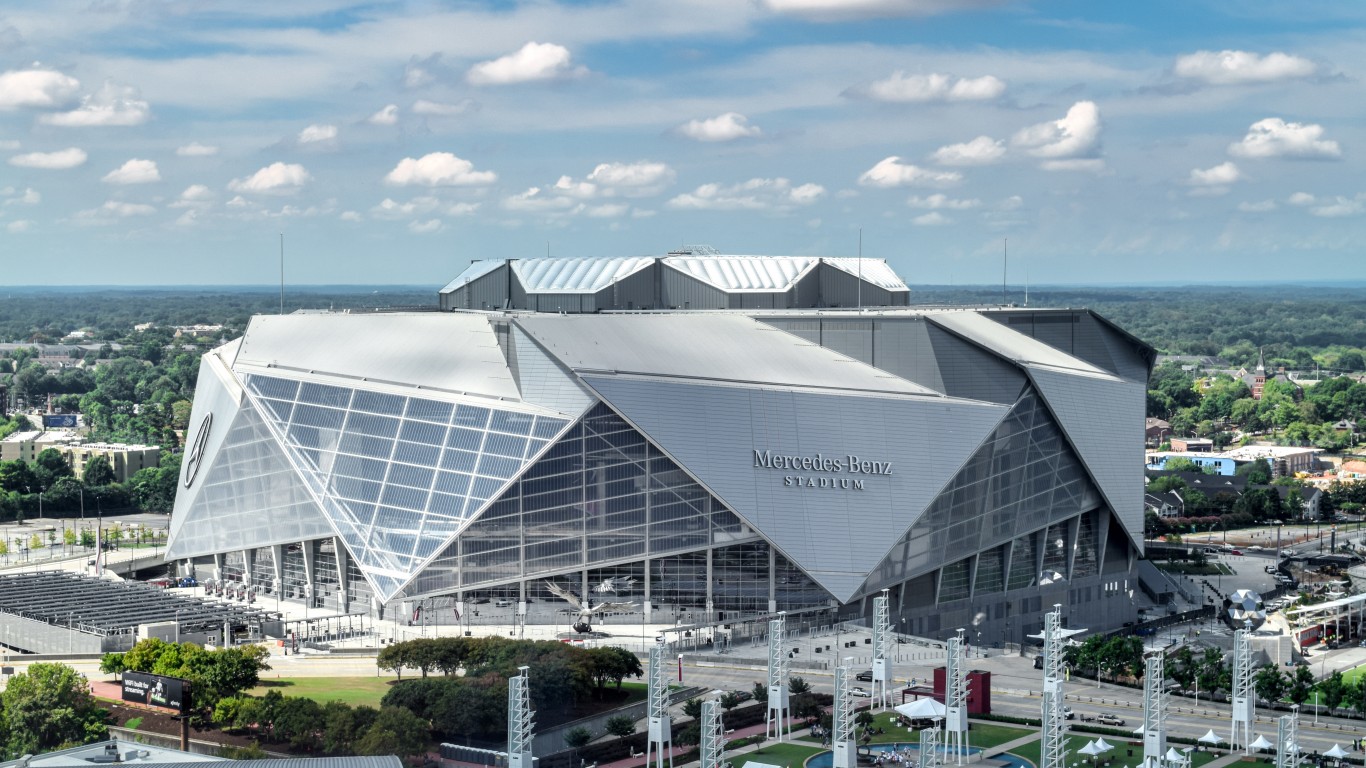
Atlanta
> Potential site: Mercedes-Benz Stadium
> Capacity: 71,000 (expandable to 75,000)
[in-text-ad]
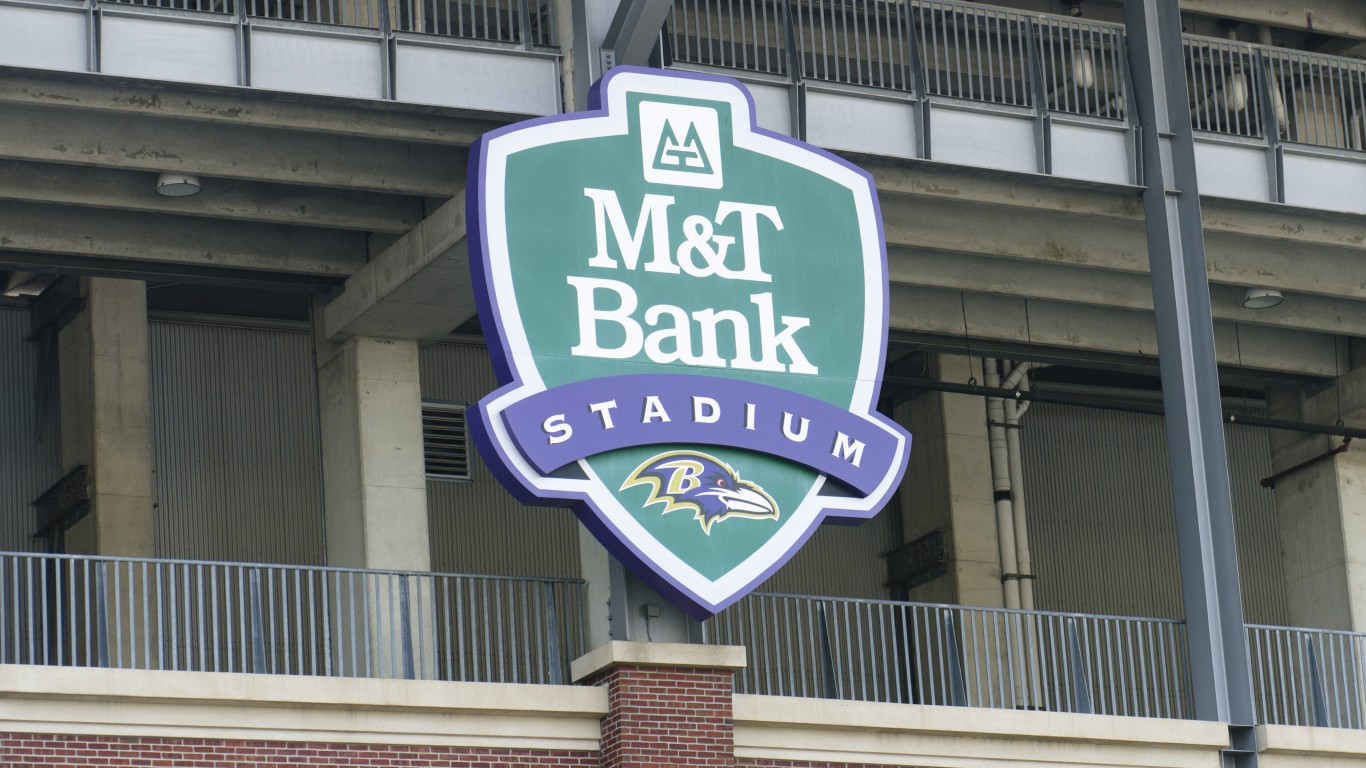
Baltimore
> Potential site: M&T Bank Stadium
> Capacity: 71,008
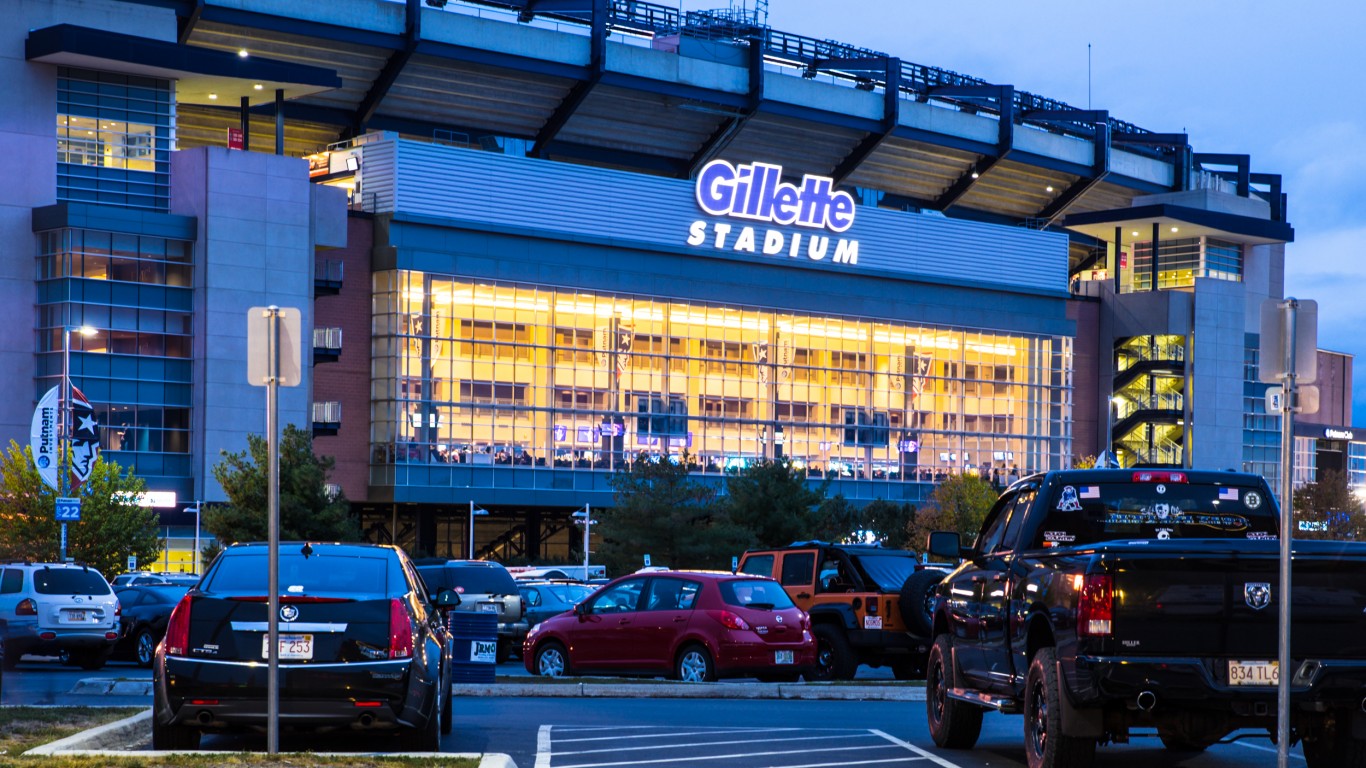
Boston
> Potential site: Gillette Stadium
> Capacity: 65,878
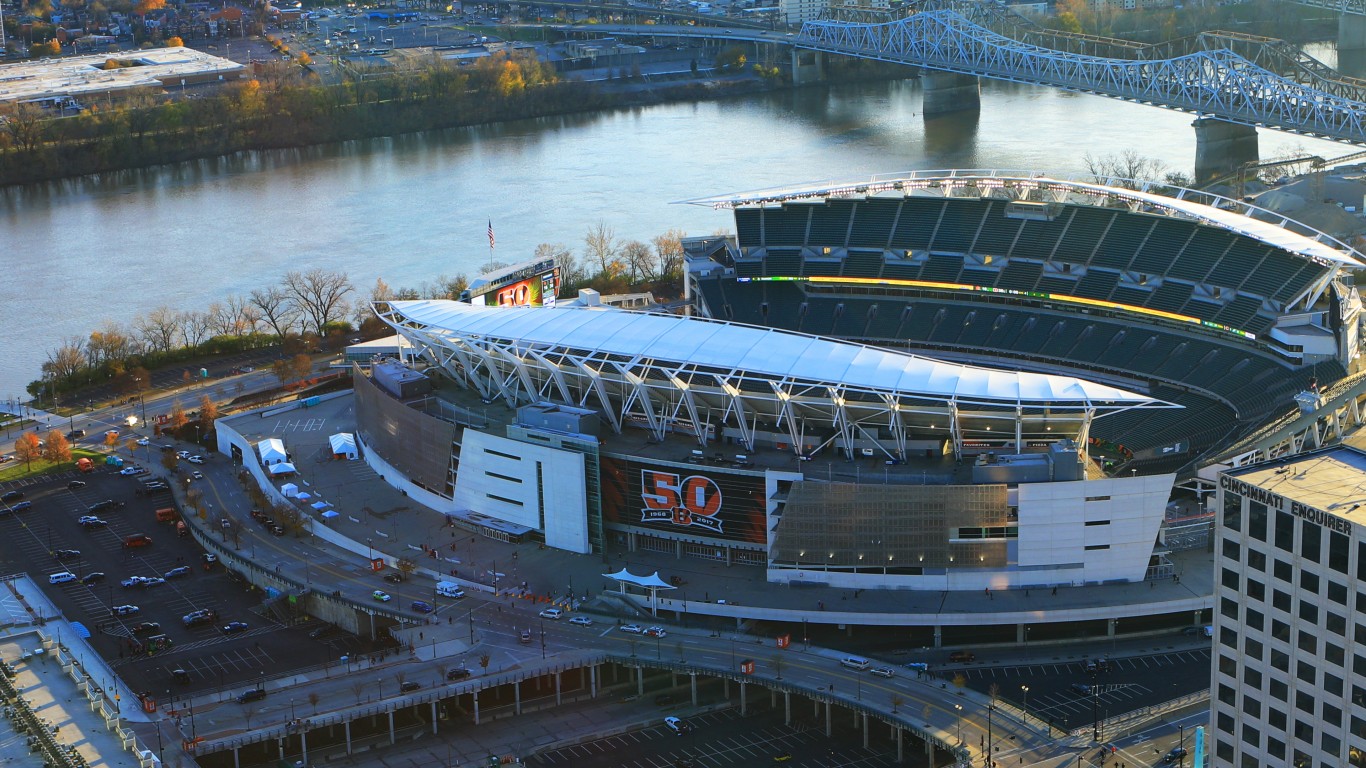
Cincinnati
> Potential site: Paul Brown Stadium
> Capacity: 65,515
[in-text-ad-2]
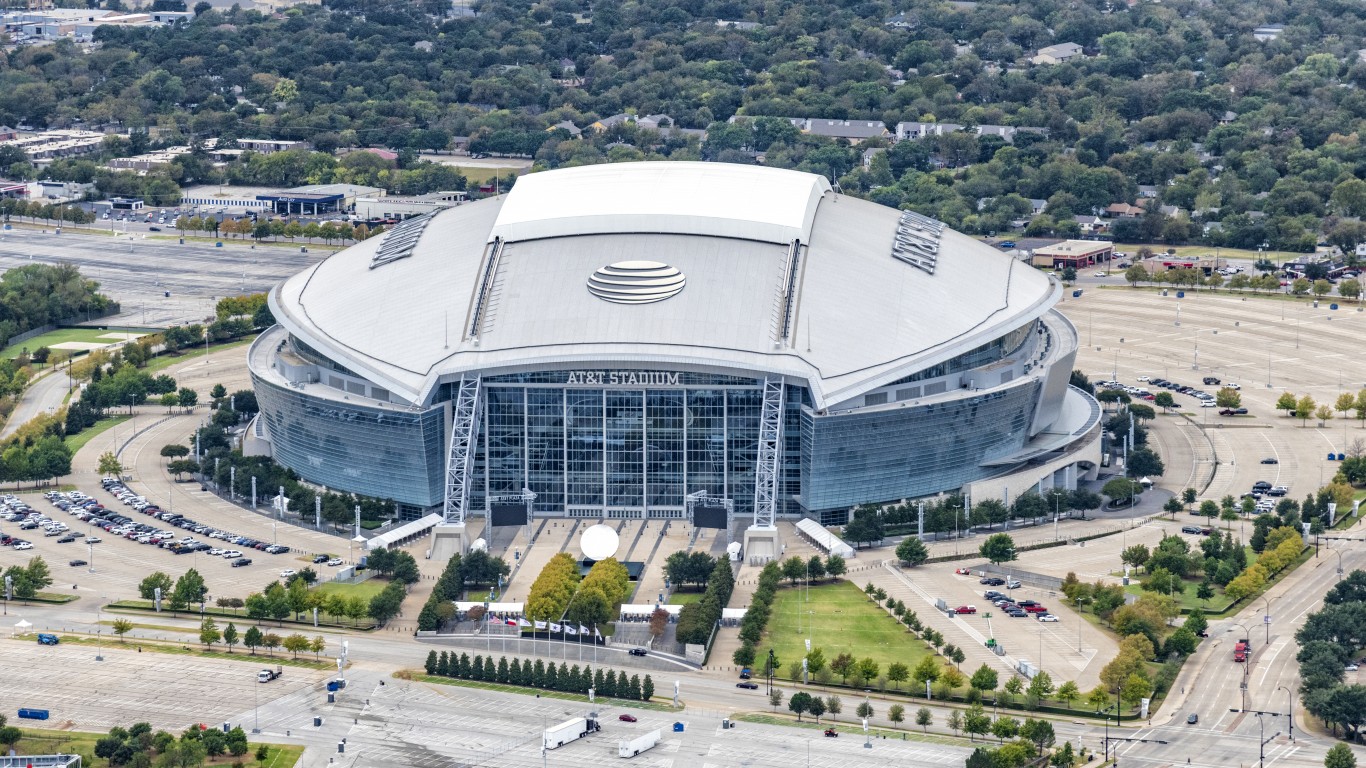
Dallas
> Potential site: AT&T Stadium
> Capacity: 80,000 (expandable to 105,000)
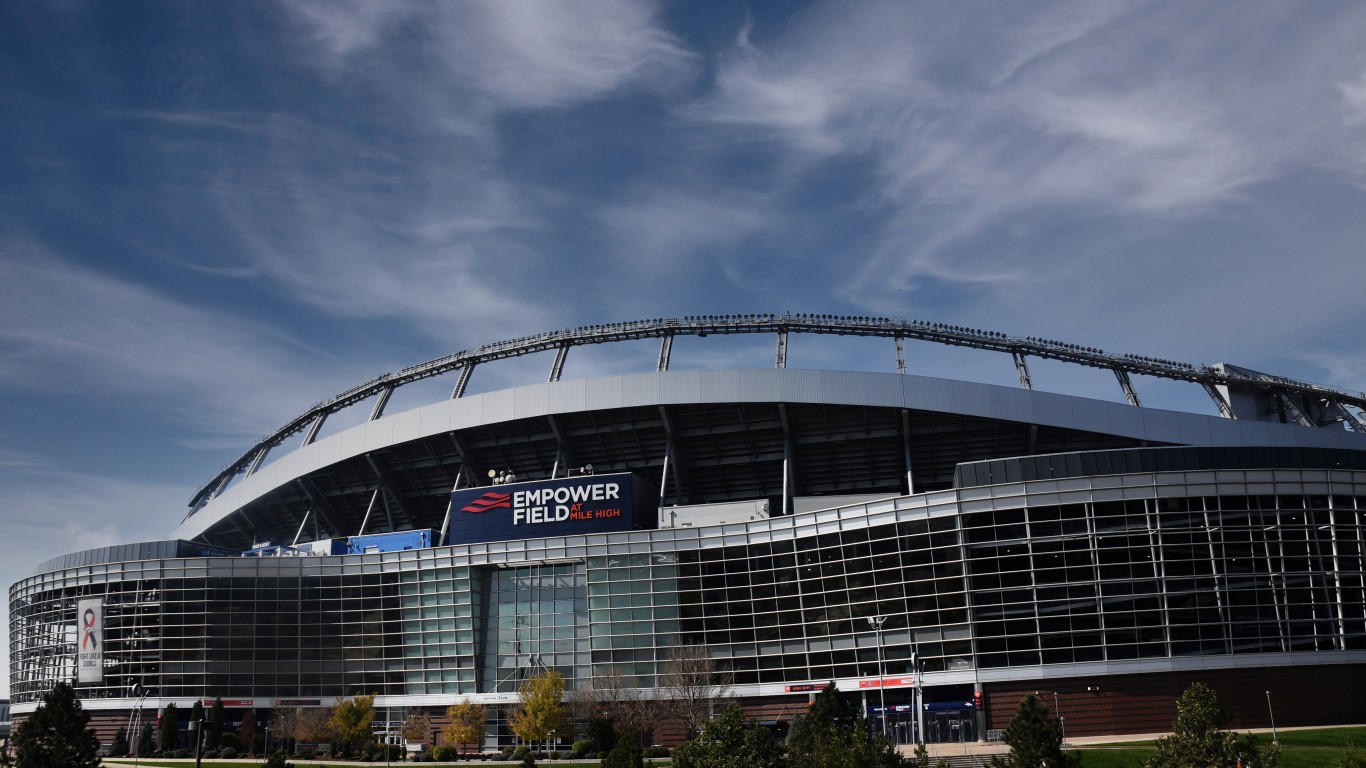
Denver
> Potential site: Empower Field at Mile High
> Capacity: 76,125
[in-text-ad]
Houston
> Potential site: NRG Stadium
> Capacity: 72,220
Kansas City
> Potential site: Arrowhead Stadium
> Capacity: 76,416
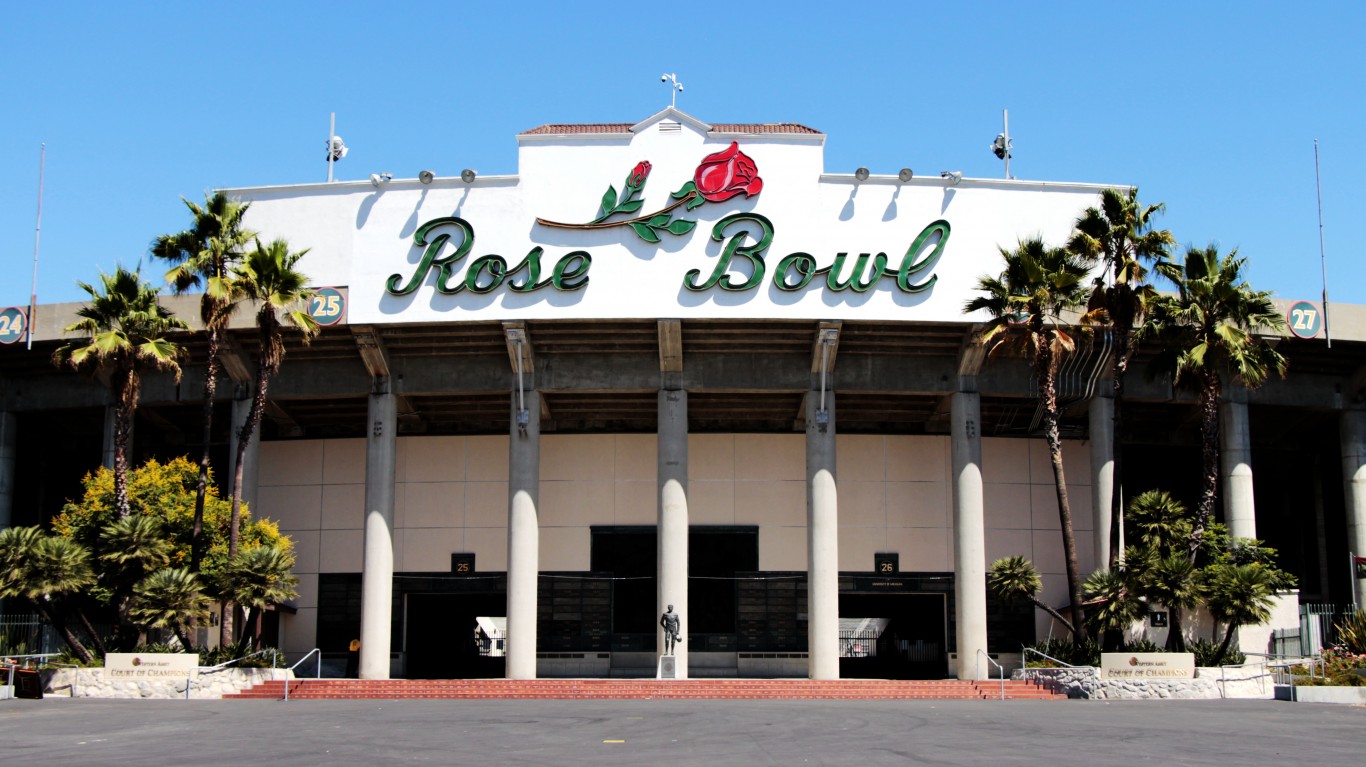
Los Angeles
> Potential site: Rose Bowl
> Capacity: 92,542
[in-text-ad-2]
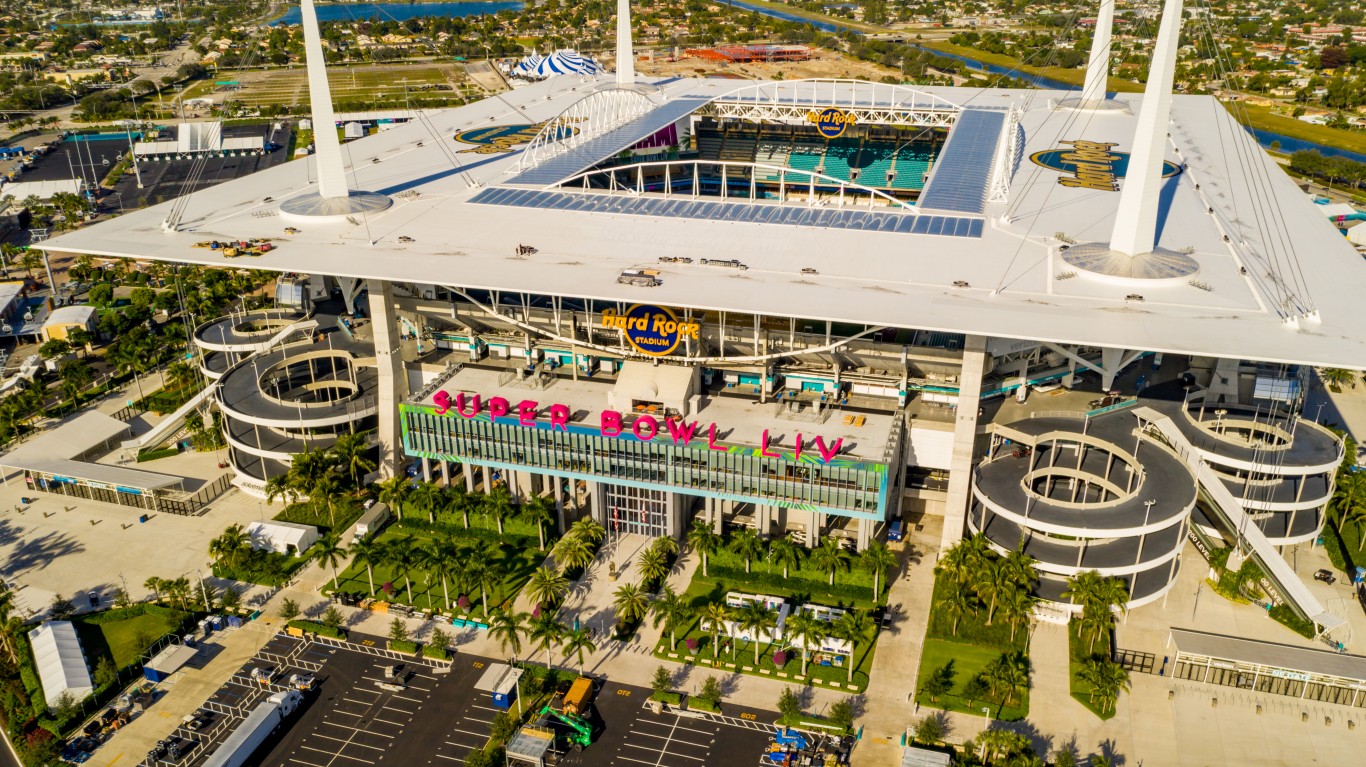
Miami
> Potential site: Hard Rock Stadium
> Capacity: 65,326
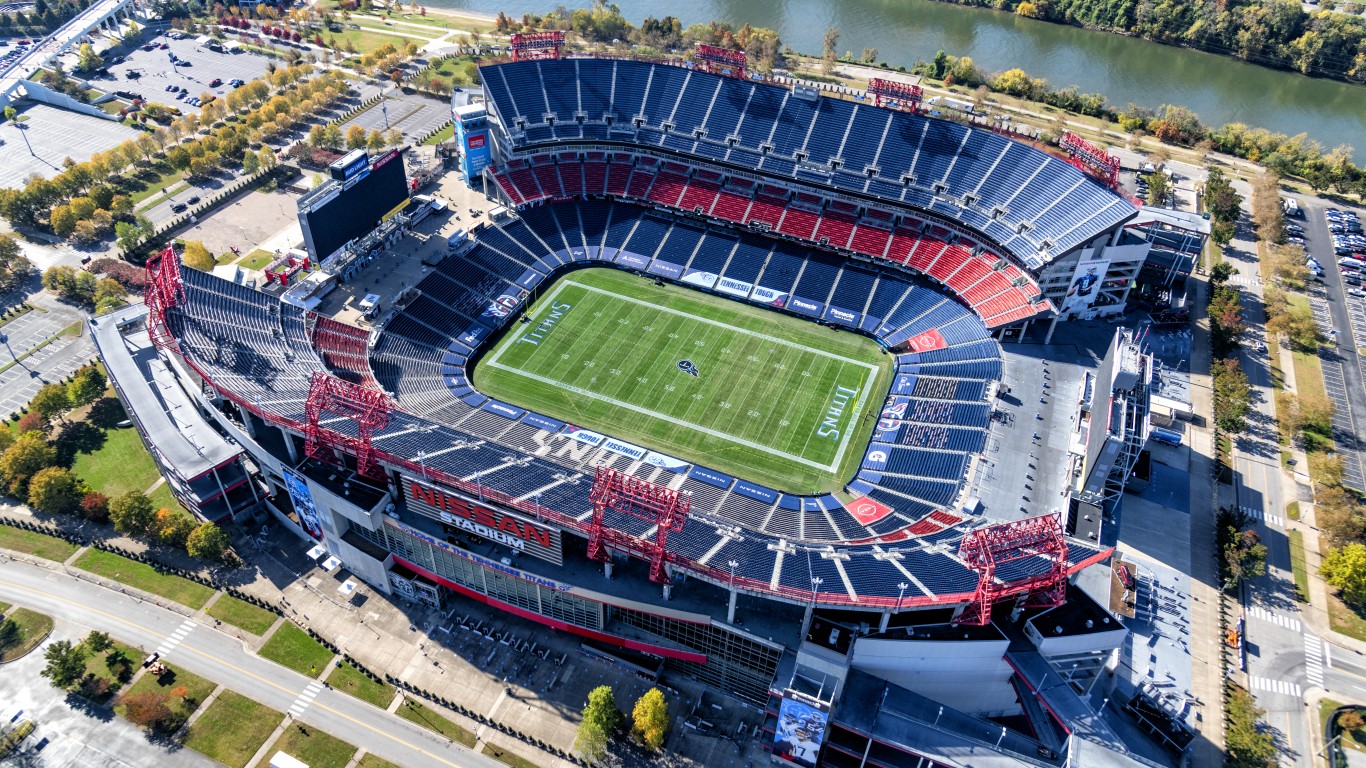
Nashville
> Potential site: Nissan Stadium
> Capacity: 69,143
[in-text-ad]
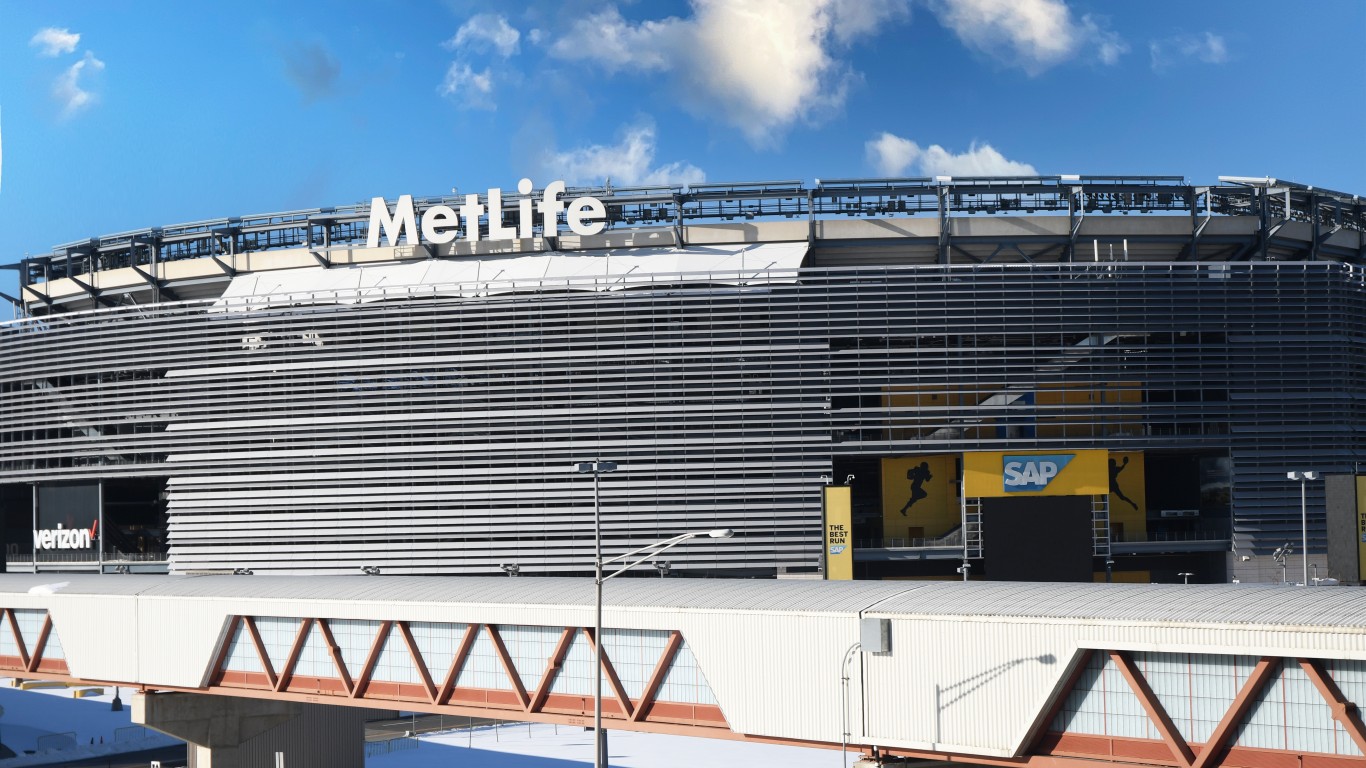
New York City / Rutherford
> Potential site: MetLife Stadium
> Capacity: 82,500
Orlando
> Potential site: Camping World Stadium
> Capacity: 65,438
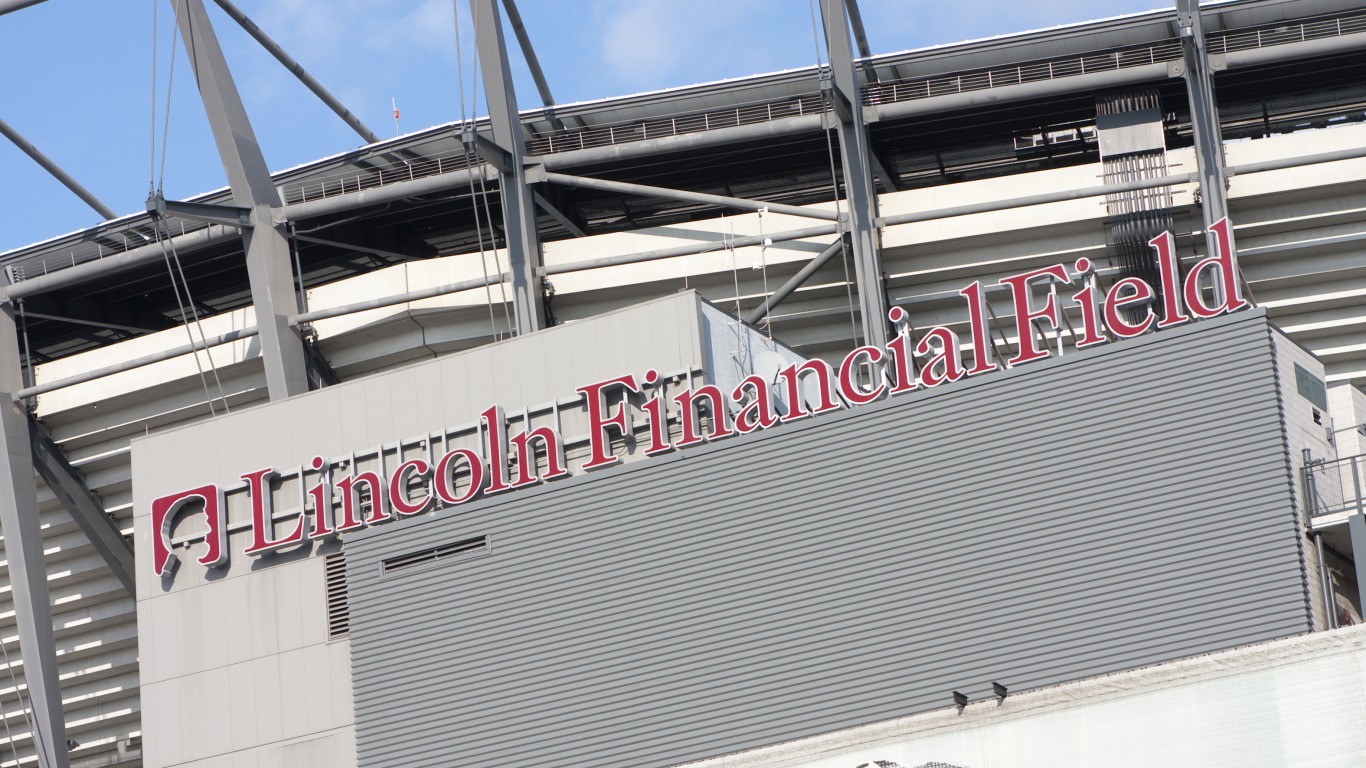
Philadelphia
> Potential site: Lincoln Financial Field
> Capacity: 67,594
[in-text-ad-2]
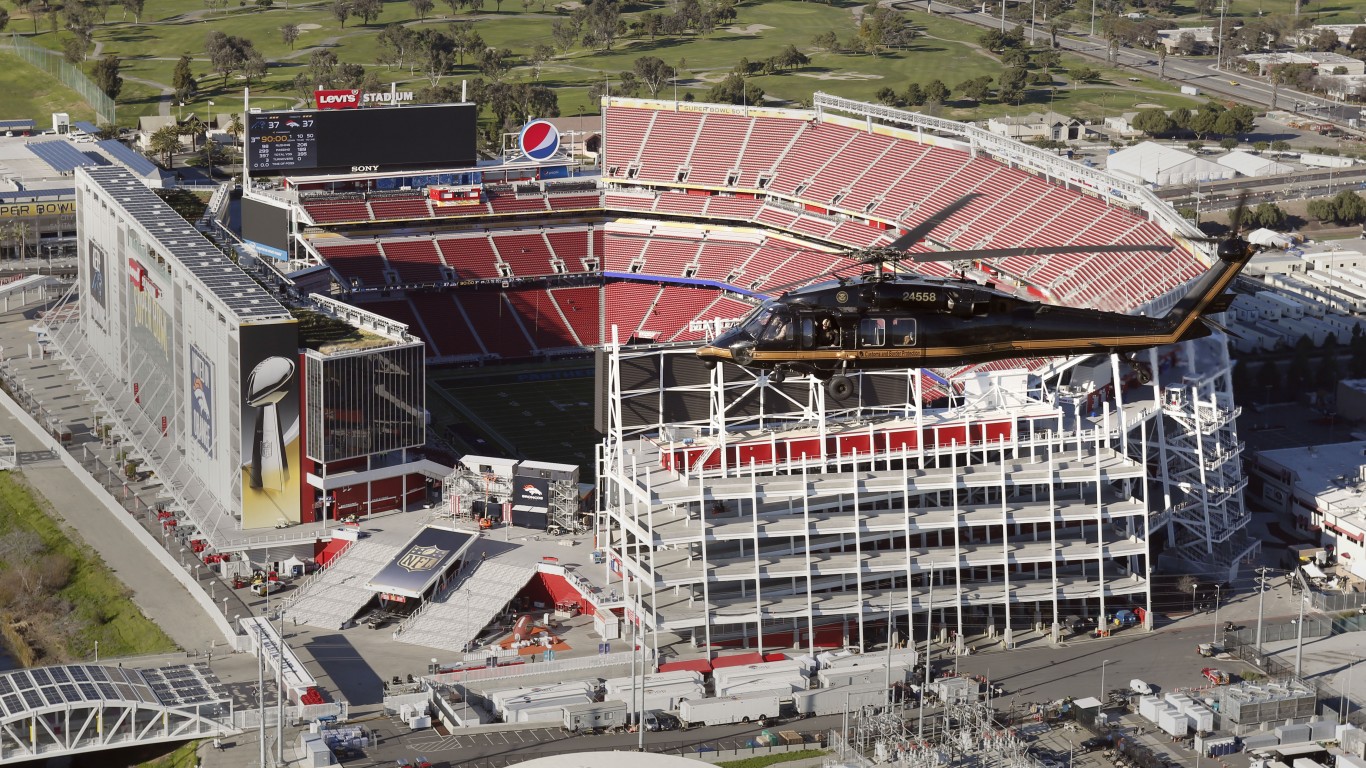
San Francisco Bay Area
> Potential site: Levi’s Stadium
> Capacity: 68,500

Seattle
> Potential site: Lumen Field
> Capacity: 68,740
[in-text-ad]

Washington, D.C.
> Potential site: FedExField
> Capacity: 67,617
Take Charge of Your Retirement In Just A Few Minutes (Sponsor)
Retirement planning doesn’t have to feel overwhelming. The key is finding expert guidance—and SmartAsset’s simple quiz makes it easier than ever for you to connect with a vetted financial advisor.
Here’s how it works:
- Answer a Few Simple Questions. Tell us a bit about your goals and preferences—it only takes a few minutes!
- Get Matched with Vetted Advisors Our smart tool matches you with up to three pre-screened, vetted advisors who serve your area and are held to a fiduciary standard to act in your best interests. Click here to begin
- Choose Your Fit Review their profiles, schedule an introductory call (or meet in person), and select the advisor who feel is right for you.
Why wait? Start building the retirement you’ve always dreamed of. Click here to get started today!
Thank you for reading! Have some feedback for us?
Contact the 24/7 Wall St. editorial team.
